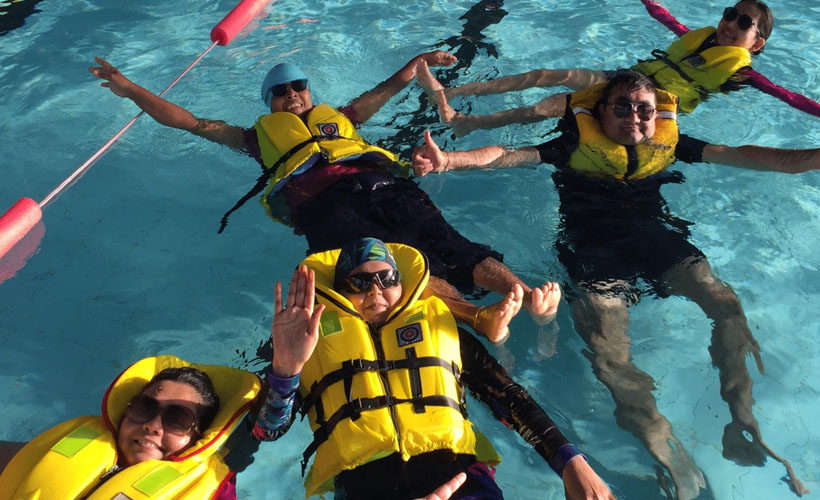31/7/2020

Royal Life Saving’s Swim for Integration Project, funded by the Australian Department of Home Affairs and the Fostering Integration Grants, has provided swimming and water safety education for 258 multicultural migrants in Northern Territory and Queensland, helping them to develop their confidence and ability in swimming and aquatic activities.
Swimming and aquatic activities form the very fabric of Australian culture and society, providing many social, health and wellbeing benefits for all ages and abilities. Usually, this love of the water starts early with many Australians learning to swim in their formative years.
However, Royal Life Saving research shows that many refugees and migrants arriving in Australia have limited or no formal swimming or water safety education. For example, 93% of project participants in Townsville, QLD, described themselves as non-swimmers and 81% said they had never participated in formal swimming lessons.
As well as drowning prevention and educating people about the risks of drowning, the aim of this project was to support participants to foster social, economic and civil integration through swimming while engendering cultural awareness and an appreciation of diversity within local communities.
Participating aquatic facilities noted that the project had taught their staff a lot about multicultural inclusion and integration, helping them to provide culturally appropriate recreational spaces and to ensure that everyone received a warm welcome.
Royal Life Saving CEO, Justin Scarr, said “We want all Australians to enjoy the health and social benefits of swimming and aquatic recreation so that they can enjoy the water safely and confidently. This project highlights the importance of the local pool as a hub for recreation – a safe place to relax, have fun, entertain children, meet friends and socialise, while gaining valuable and potentially lifesaving skills.”
The project also worked with various partner organisations to highlight the importance of swimming education and the heightened risk of drowning among migrants to Australia, outlining how they could work together to facilitate equitable access to supervised aquatic environments and affordable swimming education. In another example of the continuing impact of the project, third-party providers in Queensland are in communication with James Cook University to carry on a university-based program for international students and migrants in the Townsville area.
The Swim for Integration Project included sessions in Darwin and Palmerston, in NT, and in Townsville, Cairns and Toowoomba, in Queensland. This work is set to continue with Royal Life Saving NT looking to establish a volunteer program, working with two local swim teachers to conduct further classes for participants. In addition, Royal Life Saving QLD is working with TAFE, James Cook University and smaller community-based migrant groups in Townsville, Cairns and Toowoomba to continue these swimming programs for more people.
Personal stories
A teenage boy who had recently arrived from a war zone and a non-swimmer was a keen participant in the program, so much so that he is currently working towards obtaining lifeguard qualifications. While he still has some way to go, the improvement in his swimming skills, increased communication and confidence is inspiring everyone within his community.
One of the children learn to swim classes included sisters whose progress and enjoyment inspired their father – who had never before been in a pool before – to join the adult learn to swim class. This meant that, after his classes, the whole family could stay behind in the pool to all play and practice together.
A female participant in the adult learn to swim program, who had never entered water before and who was afraid to get her face wet, is now able to carry out survival front and back strokes, and was delighted to be able to swim a full length of big (deep!) pool.
